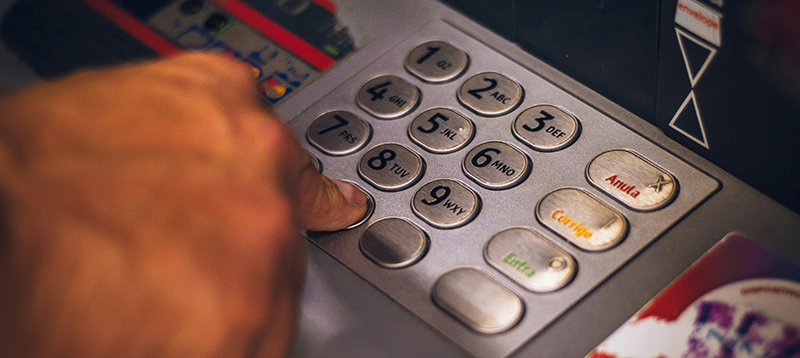Banking Services

While opting for a bilingual bank can simplify your banking needs, having a good grasp of Chinese makes it easier to handle common tasks like opening accounts or setting up online banking. Keep in mind, some employers require paychecks to be deposited into specific banks, thereby limiting your options.
Opening an account
Opening a bank account in Taiwan usually requires a valid Alien Resident Certificate (ARC), a passport, and a small initial deposit. Some banks may also request a local phone number. During the process, you'll set up a passbook—a small booklet used to track transactions and balances, reflecting Taiwan's traditional banking practices—and receive a debit card. To avoid unnecessary trips, it's best to call the bank in advance to confirm the required documents.
Repatriated Taiwanese citizens can use their NIC (National Identification Card). Bank tellers have a fiduciary duty to ask if you are also an American citizen, měi guó jí (美國籍), as this entails additional financial reporting for tax purposes. Dual U.S. citizens may be denied service by a bank to avoid the additional administrative obligations. Usually, banks in Taiwan have limited means and incentive to verify your dual nationality, regardless of whether or not you choose to disclose this information.
Key Terms
| Alien Resident Certificate (ARC) | 外僑居留證 | wài qiáo jū liú zhèng |
| National Identification Card (NIC) | 國民身份證 | guó mín shēn fèn zhèng |
| Bank Teller | 櫃員 | guì yuán |
| Bank Passbook | 存摺 | cún zhé |
Passbooks
In Taiwan, "cún zhé" (存摺), are vestiges of traditional banking practices. These passbooks allow you to keep a physical record of your transactions and account balances. When you visit a bank branch, you can update these compact booklets using dedicated printing machines or with the help of a teller, ensuring it reflects your most recent transactions. Some government agencies or employers may request passbooks as part of income verification or tax filing.
Lost, damaged, or depleted passbooks can be replaced. Simply hand over your old passbook, if available, to the teller and ask to "gēng huàn cún zhé" 更換存摺. You can also use this phrase with door attendants or reception security (mén wèi, 門衛), who will guide you accordingly. Used passbooks are usually clipped and handed back to you.
Multiple passbooks may be issued under specific circumstances:
- Separate Accounts: If you open different types of accounts, such as a savings account, checking account, foreign currency account, or even gold and silver—each will typically come with its own passbook.
- Joint Accounts: If you open a joint account with another person, each account holder will usually receive a separate passbook to track their transactions.
- Special Accounts: Some banks may issue multiple passbooks for special accounts, such as fixed deposits or investment accounts, to keep records organized separately.
Applying for Credit Cards
Applying for a credit card is much easier if you have an established banking relationship. To start, ensure you have a valid Alien Resident Certificate (ARC), proof of income such as a recent pay stub or tax certificate, and your passport. Some banks may also request your passbook for verification of transaction history or a local guarantor for first-time applicants.
Repatriated Taiwanese do not need to bring a passport. Instead of an ARC, they can present their NIC (National Identification Card).
Many banks offer a range of credit cards with various benefits, including cashback, travel rewards, and discounts at partnered retailers. Before applying, consider your spending habits and choose a card that aligns with your needs. For example, frequent travelers might benefit from cards with travel insurance or airport lounge access, while shoppers might prefer those with cashback options.
| Credit Card | 信用卡 | xìn yòng kǎ |
| Guarantor | 保證人 | bǎo zhèng rén |
| Annual Fee | 年費 | nián fèi |
| Interest Rate | 利率 | lì lǜ |
| Pay Stub | 薪資單 | xīn zī dān |
| Tax Certificate | 稅務證明 | shuì wù zhèng míng |
| Passport | 護照 | hù zhào |
Eligibility Criteria
- Age: Applicants must usually be at least 20 years old.
- Residency: Non-citizens must hold a valid ARC or APRC (Alien Permanent Resident Certificate).
- Income: A stable income source is typically required; some banks may have specific minimum income thresholds.
How to Apply
To apply, visit a branch of your preferred bank or apply online if the bank supports it. During the application process, you may need to:
- Fill out an application form (available in both Chinese and English at some banks).
- Provide required documents, including proof of identity, income, and residency.
- Wait for approval, which may take a few days to weeks, depending on the bank's processing times.
International ATMs
Taiwanese credit cards require explicit approval to be used at ATMs abroad, which can be granted at the application stage. To request this feature, present your credit card to the bank teller and request to "kāi tōng kuà guó jiāo yì", 開通跨國交易. You can also request to set daily withdrawal and spending limits for added security or inform your bank of your travel plans to prevent transactions from being flagged as suspicious.
Banks may contact you if suspicious activity is detected, often triggered by frequent or large expenditures abroad. If you become a victim of fraud, there is a good chance of recovering your lost funds, as the bank will typically take swift action to investigate the matter and protect your account.
| Enable | 開通 | kāi tōng |
| Cross-Border | 跨國 | kuà guó |
| Transaction | 交易 | jiāo yì |